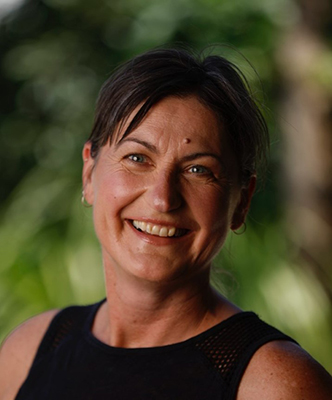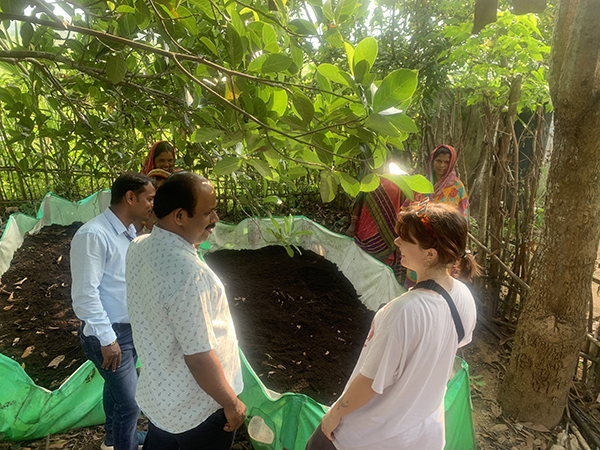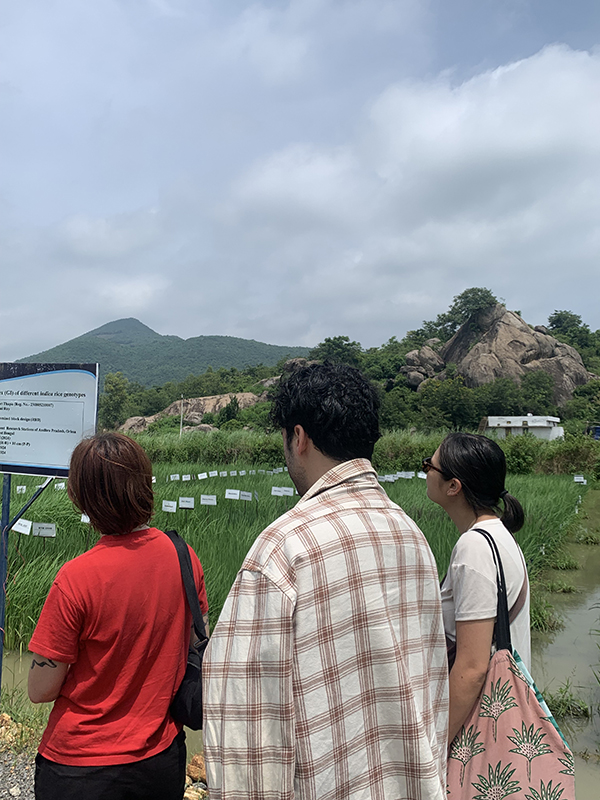A group of four RMIT students had the opportunity of a lifetime to learn about social work and gain practical experience in India through the NCP.
RMIT has a long-term relationship with Centurion University of Technology and Management (CUTM), in Odisha, India. The Vice Chancellor of Centurion University, Professor Supriya Pattanayak, is a doctoral alum of RMIT focused on social work. This personal relationship helped to facilitate an ongoing hosting partnership between the NCP and Centurion University.
After an orientation, the students began their placements with key not-for-profit organisations. The first, the Centre for Youth and Sustainable Development, is the oldest NGO in Odisha and has been running for over 40 years. The second, Aaina, works with children living with disabilities and their communities. Odisha has a very high tribal population, and so the students learnt about the tribal communities, and how the organisations supported them.
"Odisha state has a unique quality to it, and so our students had the opportunity to just be able to learn, listen and observe how work is done in a very different cultural context," Field Education Coordinator of the Bachelor of Social Work program at RMIT, Margareta Windisch said.
Placements were focused on a particular method of social work called community work or community development, a practical approach that involves broader community engagement. NGOs hold meetings with the communities to discuss the issues they are facing, and advocate to different levels of government to improve community quality of life.
"It's such a unique placement because we were doing things, getting exposure and being looped into meetings that we wouldn't have the chance to be involved in as placement students in Australia," said Tyra Krook, one of the RMIT students. "Being able to go out to the disaster sites or going into the slums and witnessing the sort of social work being undertaken, and making those connections was incredible."
Tyra and fellow student Lia Stark both agreed that soft skills such as intercultural communication, flexibility and resilience were crucial to their successful placements. "India challenged a lot of my preconceived ideas of what intercultural communication can look like," said Lia. "I've always been in the dominant society, welcoming people into my culture. But I've never been the person in another culture struggling to understand where to go, how to go, language differences and cultural differences."
"Cross cultural communication is a huge strength that I've taken away from India," agrees Tyra.
Odisha is frequently affected by natural hazards, and during their placement, a cyclone hit the north side of the state. The NGOs hosting the NCP students mobilised to assist the community, giving the students first hand exposure to disaster relief.
"We ended up going out to assist with disaster relief, speaking to families and communities and assessing damage. Through an interpreter, we asked them about the issues that they were facing, and what extra support they might need," said Jason Marcel-Jones, a third RMIT student.
In Australia, to complete a degree in social work, each student must complete 1000 hours of practical experience.
Now finishing their studies and entering the job market, their India placements have been key for planning their future careers. "I'm very interested to see if I can go back to India and do some work, because I think I've made some really good connections there," says Tyra. "I think there's a lot of social work I could do overseas which I didn't think that I could do prior to this experience."
After her time in Odisha, Lia is keen to work with children, inspired by her placement with Aaina. "I worked with a lot of kids and it was incredible to provide a brief moment of silliness to kids who were going through something that I could not imagine. Being there, supporting young people was also incredible," says Lia.
Jason has already secured work as a Graduate Social Worker at a local community wellbeing hub and said his key takeaway from his placement in India was learning how social work operates in a different cultural space and with different levels of resources. "At the beginning, we were told that we might need to reorient ourselves," says Jason. "Whenever we thought something was wrong or we questioned a way of something or what someone is doing, we did a step back and held ourselves accountable. It's been very helpful in my life, outside of India as well, to remember taking that step back for a second."




